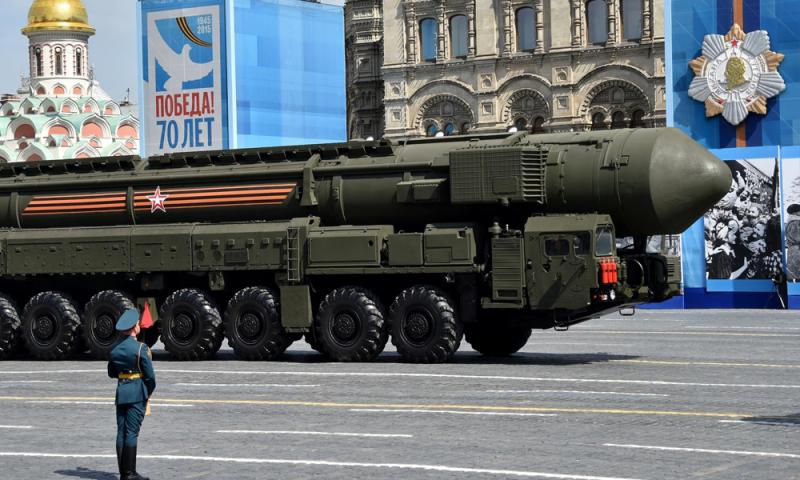LETTER | Nuclear weapons are the biggest threat to human safety
LETTER | Covid-19 is not the only threat to human safety, as there exist other threats, and the greatest among them is nuclear weapons. So far, nine countries are believed to have them, while some other countries are apparently racing to obtain such lethal weapons.
In a one-year period, Covid-19 killed about 1.5 million people around the world but within a few blinks of an eye, nuclear weapons killed over 200,000 people in Hiroshima (Aug 6, 1945) and Nagasaki (Aug 9, 1945). The destructive capacity of these deadly weapons has gradually increased and they are now 3,000 times more powerful compared with the weapons used against the two Japanese cities in 1945.
Notwithstanding the lethality of nuclear weapons, the race to have them by the ‘have nots’ continues and the ‘haves’ have shown little or no interest to disarm themselves of such destructive weapons.
The race to acquire nuclear arms began in 1945. On Jul 16 that year the US detonated the first-ever nuclear bomb in the New Mexico desert. Later, on Aug 29, 1949, the Soviet Union detonated its own first deadly nuclear weapons test, code-named ‘RDS-1’, at the Semipalatinsk test site in modern-day Kazakhstan.
The nuclear arms race continued between the two superpowers during the Cold War era (1945-1991) and gradually spread among the other Big Five nations and beyond. Between the years 1945 and 1991 over 2,000 nuclear tests were performed and more than 100,000 nuclear weapons were built.
In addition to nuclear weapons, some states have developed the delivery systems for such weapons and the most common among them are ballistic missiles that include the Intermediate-Range Ballistic Missile (IRBM), Medium-Range Ballistic Missile (MRBM), and Short-Range Ballistic Missile (SRBM), as well as cruise missiles comprising sea-launched cruise missiles (SLCM), air-launched cruise missiles (ALCM), and ground-launched cruise missiles (GLCM).
These missiles deliver nuclear warheads to targets thousands of miles away that could cause unprecedented death and destruction, obliterating everything on their path.
Providentially, after the second world war, nuclear weapons have not been used. However, there is no assurance that these lethal weapons will not be used in the future. There is no specific rule of international law that prohibits the use of nuclear weapons.
The legality of their use depends upon the application of the general rules of jus ad bellum and jus in bello which do not expressly outlaw the use of such weapons. Even the 1968 Nuclear Non-Proliferation Treaty (NPT) does not prohibit the use of such weapons. It permits the Big Five nations (the nuclear haves) to keep their nuclear stocks but not expand them. The NPT disallows other states to acquire nuclear weapons.
However, some non-signatory states, like Israel, India, and Pakistan, have developed nuclear weapons with little or no legal problem. Although Israel, following its policy of ambiguity, officially neither accepts nor denies having nuclear weapons, the popular belief is that it has such weapons since the 1950s.
Some other Middle Eastern countries, like Iran and UAE, are apparently trying to acquire nuclear power for peaceful purposes such as the production of electric energy, which the NPT allows, but experts believe this process is unnecessarily expensive, as there are other cheaper sources of energy, and is extremely dangerous due to possible accidents, the 2011 nuclear disaster in Japan is an eye-opening example.
So let the world be free from nuclear threats. Every threat to human safety has to be addressed. The efforts of the relevant international agencies, like the WHO, and governments around the world to address the devastating effects of the Covid-19 pandemic deserve appreciation.
Considering the lethality of nuclear weapons, the relevant international agencies, like the International Atomic Energy Agency (IAEA) and the so-called ‘nuclear power states’ should exert their efforts to halt the nuclear race, destroy the existing ones, and agree to outlaw their use in any circumstances.
The ‘non-nuclear power states’ should not waste their time and energy to acquire nuclear weapons for such weapons bring no good to humanity but death and destruction.
RM12.50 / month
- Unlimited access to award-winning journalism
- Comment and share your opinions on all our articles
- Gift interesting stories to your friends
- Tax deductable
